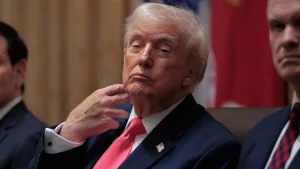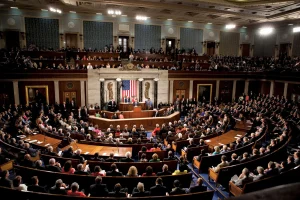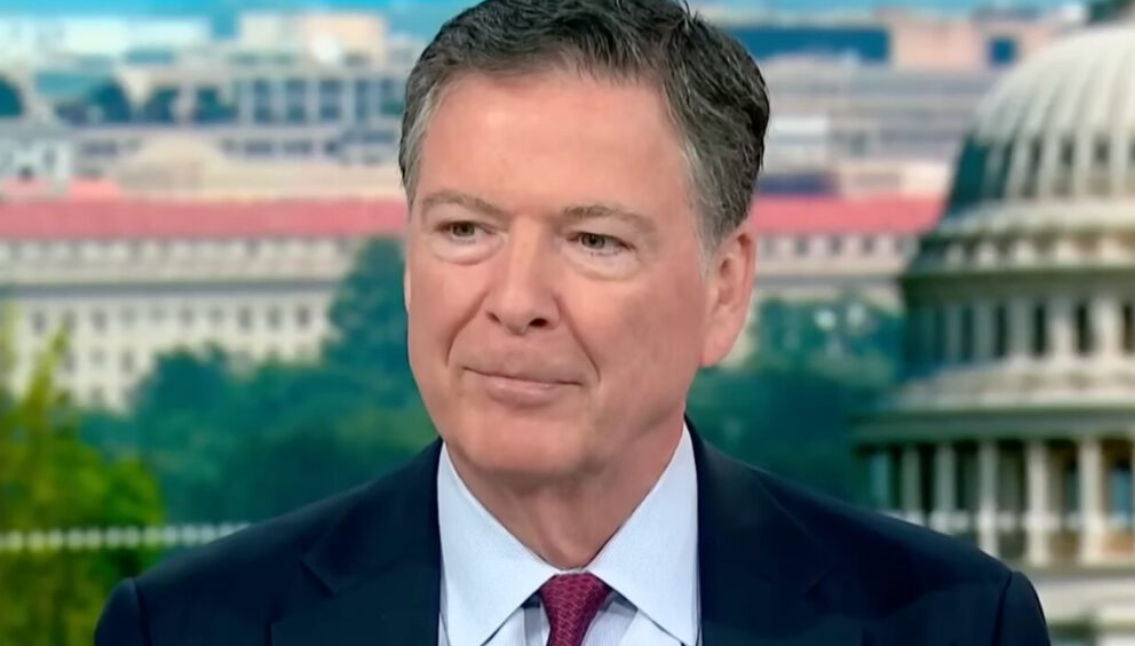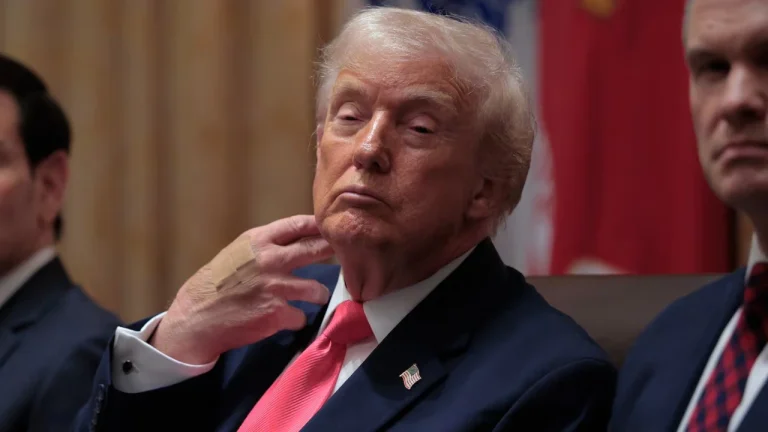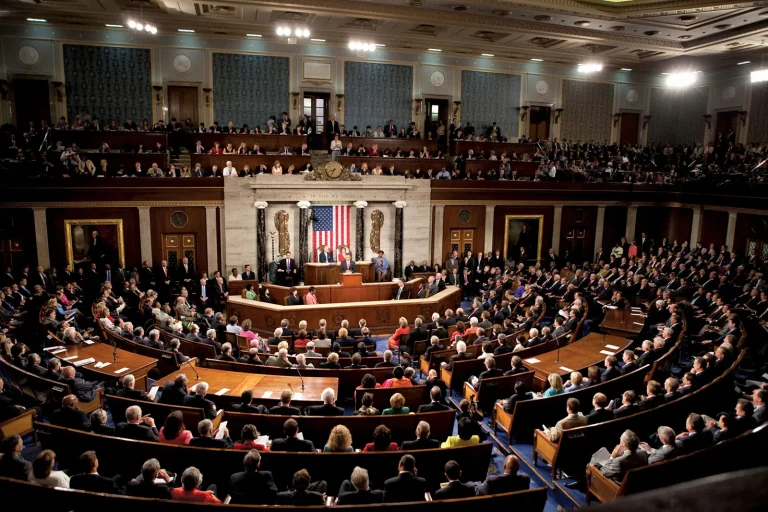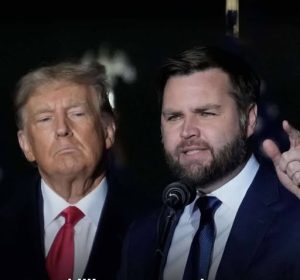NOTE: VIDEO AT THE END OF ARTICLE
A newly declassified appendix to the Justice Department Inspector General’s 2018 report reveals explosive new claims about how the FBI handled its investigation into Hillary Clinton’s use of a private email server. The documents expose critical lapses in judgment by then-FBI Director James Comey, including the failure to fully examine thumb drives containing potentially classified material and a reliance on unverified intelligence to justify public conclusions.
The revelations reignite a long-running debate over whether political pressure—and selective enforcement—shaped the outcome of one of the most consequential law enforcement investigations in modern U.S. history.
FBI Ignored Crucial Thumb Drives, Appendix Reveals
According to the appendix, which was recently released by Senator Chuck Grassley, thumb drives containing sensitive State Department information—including communications involving President Obama and potentially members of Congress—were never subjected to a full review by the FBI.
Despite internal recommendations urging further analysis, senior officials declined to pursue a deeper investigation, citing “victim privacy” concerns. A draft memo warning of national security implications was never finalized.
This apparent failure to investigate vital digital evidence raises serious questions about the thoroughness—and possible bias—of the Clinton email probe.
Comey Influenced by Questionable Intelligence
The appendix also details how Comey’s July 2016 announcement clearing Clinton of criminal wrongdoing was influenced by a series of intelligence reports that were widely viewed as dubious and possibly of Russian origin.
The reports alleged that Attorney General Loretta Lynch and Comey himself might have political motivations for shielding Clinton. Although the FBI later concluded the intelligence was not credible, Comey used the fear of potential leaks as a justification for announcing the investigation’s findings unilaterally—without consulting Lynch.
Comey has testified that he made the decision out of concern that leaks would be used for “active measures” to harm U.S. credibility. However, the newly released documents paint a more complicated picture of internal divisions and a lack of consensus about how to proceed.
Discrepancies in Testimony Among DOJ Officials
The report uncovers significant discrepancies between senior officials’ recollections. Former Deputy Attorney General Sally Yates told investigators she did not recall ever seeing the intelligence reports Comey cited as justification for his public remarks.
“Yates…did not recall being shown the [REDACTED] reports,” the appendix notes. “She said…she would have remembered if someone told her these reports raised concerns.”
This contradiction further complicates the public narrative surrounding Comey’s controversial decision to hold a press conference without DOJ authorization.
Senator Grassley: ‘Political Infection’
Sen. Chuck Grassley, who helped release the appendix, didn’t mince words. “The Comey FBI’s negligent approach and perhaps intentional lack of effort…smacks of political infection,” he said.
Grassley and other GOP lawmakers have long argued that the Clinton investigation received preferential treatment, especially when compared to the aggressive pursuit of Trump–Russia collusion allegations, which relied heavily on the discredited Steele dossier.
“This shows extreme lack of due diligence,” Grassley said. “It’s a stark contrast to their full-throated investigation of the Trump-Russia hoax.”
Trump Probe vs. Clinton Probe: A Double Standard?
The report underscores an issue that continues to fuel political polarization: unequal application of justice. While Clinton’s thumb drives went unexamined and intelligence warnings were dismissed, the FBI launched the Crossfire Hurricane investigation into then-candidate Trump with far fewer verified facts.
Critics say the disparity reflects a deeper institutional bias—and a willingness to downplay or even bury damaging evidence when it involves establishment figures.
National Security Concerns Unresolved
Beyond the politics, national security experts have raised alarms about what may have been missed on the Clinton-related thumb drives. If those devices contained classified communications or sensitive State Department data, their mishandling could represent a serious breach of security protocols.
The FBI’s refusal to investigate the contents thoroughly, despite internal warnings, leaves open the question: What else might have been overlooked or deliberately ignored?
A Call for Reform
The new revelations have sparked renewed calls for greater transparency and accountability within the FBI and Justice Department. Several members of Congress are now pushing for a bipartisan commission to re-examine high-profile investigations that may have been influenced by politics.
Former DOJ Inspector General Michael Horowitz, whose original report labeled Comey’s actions “extraordinary and insubordinate,” has not yet commented on the newly released appendix.
Final Thoughts: Will Justice Be Depoliticized?
As voters and lawmakers digest these revelations, a familiar question resurfaces: Can America trust its institutions to enforce the law impartially?
The findings outlined in the declassified appendix suggest that political calculations—and perhaps fear of leaks or media narratives—played a significant role in shaping the Clinton email probe’s outcome.
Whether these revelations prompt meaningful reform or fade into political noise may ultimately depend on public pressure and a renewed demand for integrity at the highest levels of federal law enforcement.
https://www.youtube.com/watch?v=9hFWRLhV1MQ

Sarah Mitchell is a bestselling novelist recognized for her insightful and emotionally resonant stories that explore the complexities of human relationships. Originally from Denver, Colorado, Sarah grew up in a family of teachers who nurtured her curiosity and love for storytelling. She studied psychology at Stanford University, where she became fascinated by the intricacies of human behavior—an interest that would later shape her writing career. Sarah’s novels are praised for their nuanced characters, intricate plots, and ability to capture the subtle tensions that define love, friendship, and family ties. Her breakthrough novel, The Spaces Between Us, became an instant bestseller, lauded for its honest portrayal of strained family relationships and the fragile bonds that hold people together. Since then, she has published several works that continue to captivate audiences around the world. Outside of her writing career, Sarah is passionate about mental health advocacy and often partners with organizations to promote awareness and support for those struggling with emotional well-being. Her personal life is quieter—she enjoys hiking in the Colorado mountains, practicing yoga, and spending time with close friends. With each new book, Sarah Mitchell cements her reputation as a writer who illuminates the beauty and struggles of human connection.

